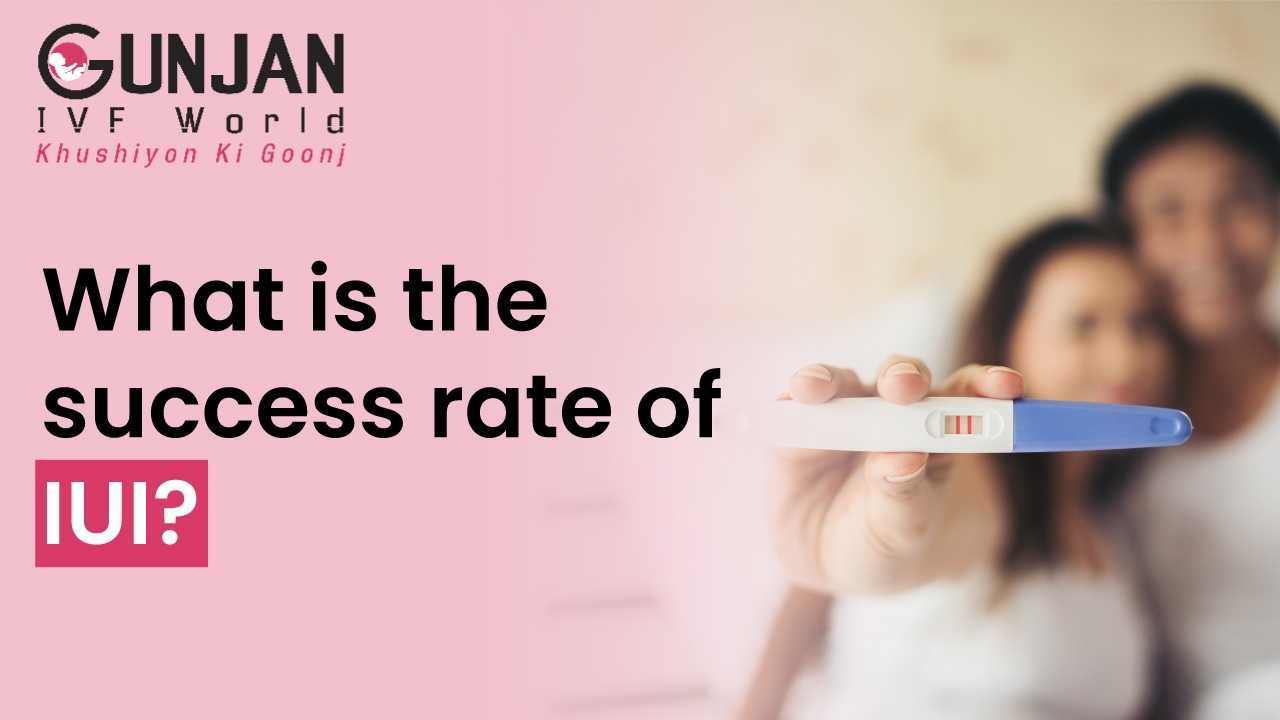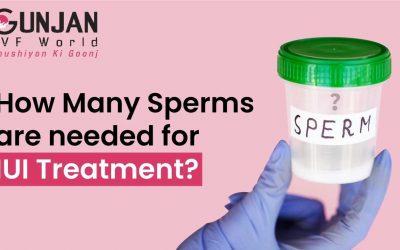
What is the success rate of IUI?
Insemination intrauterine (IUI) works to increase the likelihood of conception. This is done at fertility or reproductive clinic by injecting sperm effectively into the woman’s uterus. The clinic will time insemination to match the woman’s ovulation.
Before insemination, the sperm sample is cleaned in a saline solution. At the physician’s office or clinic, the chosen sample is put via a catheter directly into the woman’s uterus. The patient may sometimes take hormone therapy to improve her chances of becoming pregnant. IUI cycles have live birth rates ranging from 5 to 15% for all patient.
Who Can Use the IUI Procedure?
Comparatively speaking, IUI is a less intrusive and more expensive process than in vitro fertilization. It often occurs in situations like:
- Unknown causes of infertility
- Sperm count is low
- Reduced sperm motility
- When a couple wishes to protect their baby from inheriting a genetic problem
- A single woman hoping to become pregnant
- Mild endometriosis
- Cervix or cervical mucus problems
- Issues with getting an erection or ejaculating
Also Read : Step by step procedure of IUI
The success rate of IUI
When you have unexpected fertility, you have a healthy uterus, open fallopian tubes, a healthy egg count, and a healthy sperm count. If you fall into this group, your success rate varies from 7 to 10 percent every cycle.
The success rates might rise to 15% to 25% when fertility medications are added to the procedure.
You have one blocked and one unblocked fallopian tube if you have one open fertility tube. While it is possible to get pregnant, the likelihood depends on where the blockage is on the obstructed tube.
The success rate of IUI is 11.7% when the obstruction is most near the ovary. The success rate might reach 38.1% when the obstruction is the closest to the uterus.
You may be benefited from IUI if your spouse has male factor infertility and no serious sperm issues. The treatment improves natural conception by bringing the sperm and egg closer together.
Male factor infertility refers to the presence of sperm that are either normal or marginal and capable of conceiving a child. The success rate of IUI in situations of male factor infertility is 16.9%.
Also Read : What is the cost of IUI Treatment in Delhi
The success rate of IUI By Age
The success rate of the IUI process is greatly influenced by age. As you age, your chances of becoming pregnant decline because your eggs are of lower quality.
- The IUI success rate in those under 35 is 13%.
- 10% success rate between 35 and 37 years old
- 9% success rate in the 38 to 40-year range
- Over 40 years, the success rate ranges from 3 to 9%
IUI Success Rate by the Number of Follicles
Medication-assisted ovarian stimulation aims to increase follicle production so that more eggs are accessible for fertilization, increasing the likelihood of pregnancy that month. Up to a point, having more follicles increases your chances of becoming pregnant.
A delicate balance must be struck between encouraging more eggs and preventing the development of twins, triplets, or even quadruplets from having too many eggs.
Most physicians and reproductive clinics want to produce singletons since they provide a much-reduced risk to the mother and fetus. If a woman develops four or more follicles during an IUI cycle while taking medication, she will not be permitted to continue.
According to studies, multi-follicular development increases the likelihood of conception with regulated ovarian hyperstimulation during IUI. But be aware that having more follicles also increases your chance of having twins, triplets, etc.
Our ratings
IUI Success Rate by Drug Type
Most IUI cycles, though not all, are combined with fertility drugs to encourage the follicles to produce more eggs. The frequency of taking drugs, their kind, and their dose all impact IUI success rates. Your medical records, diagnoses, and preferences will all play a role in your fertility doctor’s advice.
The three effective medications used in a medicated IUI cycle are Clomid, Letrozole, and Gonadotropin; however, many clinics no longer routinely prescribe Clomid. Gonadotropin is an injectable drug that stimulates the ovaries to make more follicles.
At the same time, Clomid and Letrozole are both oral drugs that tell the brain to stimulate the ovaries more strongly. The objective is to increase the number of eggs as much as possible while minimizing the possibility of multiple pregnancies and increasing the likelihood of fertilization.
20+ Years Of Experience as Fertility Specialists
20 Years Of Experience as a Fertility Specialists
National Fertility Awards 2023
Call Us
+917042874533
Book An Appointment
Follow Us On
Factors that affect the success rate of IUI
Following are the factors that affect IUI success rates:
- The concentration of sperm in the semen: The sperm sample that will be utilized in the IUI technique must have a larger concentration of sperm, which is crucial.
- Having intercourse after IUI treatment: Although having sex after IUI may seem unneeded, scientists have shown that it may improve the likelihood of becoming pregnant.
- Medium or strenuous exercise: While regular exercise is excellent for general health, it has been shown that strenuous exercise lowers reproductive levels. In addition, implantation failure or pregnancy loss is twice as likely in women who engage in rigorous activity for longer periods than in women who do not. When undergoing infertility treatments like IUI, it is advised to choose lower-intensity activities like walking, swimming, or yoga.
- Healthy diet: All infertility therapies may benefit from a healthy diet. Choose whole foods over processed ones and stay away from them. Trans fats and a lot of sugar must be avoided since they might harm your fertility and general health. Having enough protein in the diet may help infertility treatments.
- Stress: Almost all of the body’s organs and systems are impacted by stress. You may calm your anxieties during IUI treatment by doing yoga, going for a walk, practicing meditation, or doing basic breathing techniques.
FAQs
- How Many IUI Cycles Should You Try?
Most physicians advise 3 to 6 rounds of IUI before progressing to IVF if you are a woman under 35. Instructions for those who are 35 or older are usually slightly different.
This is because your fertility begins to decline beyond the age of 35, so your chances of conceiving by IUI might be minimal.
- What is the First-time IUI success rate?
The success rate of intrauterine insemination in women is typically about 10 – 20% on the first attempt.
Share this with
Related Blogs
How Many Sperm are needed for IUI?
Infertility is a serious problem not only in India but across the world as well. That is why it is really important to go for some alternative procedures of reproduction.
How Much is IUI Treatment Going to Cost in Delhi?
This is a question that couples often ask when they are considering this treatment option. Couples trying to conceive often have to weigh the cost of different fertility treatments. When it comes to the cost of IUI treatment, there is no one-size-fits-all answer.
Follow Us On
About Author









